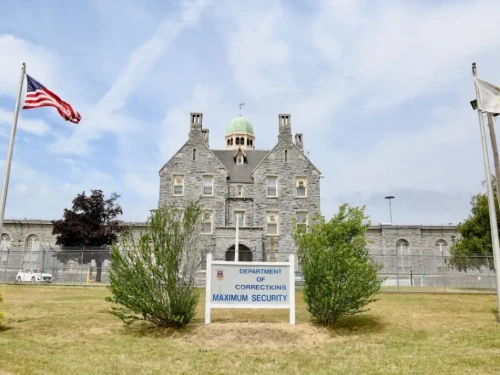A group of Muslim men incarcerated at the state’s high-security prison complex in Cranston filed a lawsuit in federal court Thursday, alleging the facility is placing illegal restrictions on their ability to practice their faith.
Lawyer Jared Goldstein with the Roger Williams School of Law and attorneys from the American Civil Liberties Union of Rhode Island (RI ACLU) say the Rhode Island Department of Corrections has made it nearly impossible for the men to have regular visits with an Imam, to properly observe the fast during Ramadan, to engage in communal prayer, or to have basic religious items such as prayer rugs.
“Prisons can impose all sorts of restrictions, and prisons have a lot of legitimate security needs, but that doesn’t mean that they can take away a person’s right to practice religion,” said Goldstein.
The lawsuit claims Christian inmates have greater freedoms like being allowed to meet with their chaplains weekly.
Goldstein said he wanted to file the lawsuit ahead of Ramadan, which begins in two weeks, to give the judge time to grant some relief during the holiday. During the month of Ramadan, observants typically fast while the sun is up, but can eat meals after sunset and before sunrise, and are not required to restrict their calories. The plaintiffs say last year the prison served Ramadan meals long after the sun had set and long before it came up, meaning “RIDOC required Plaintiffs to extend their fast by up to four hours each day in order to observe Ramadan,” according to the lawsuit. Plaintiffs also said the food did not contain enough calories for an adult man.
Goldstein and the ACLU attorneys are representing their clients pro bono. Goldstein said the lawsuit was made possible by a legal clinic he facilitates at the Roger Williams School of Law called the Prisoners’ Rights Clinic, where students review and select cases brought by prisoners. Since the clinic is pro bono, it receives many more cases than it can take on or are viable, but Goldstein says the case against RIDOC stuck out to him.
“In this case, we met with a group of prisoners who all told us the same story,” he said. “We thought we really needed to step in and act and see what we could do to get them some justice.”
J.R. Ventura, a spokesperson for RIDOC, wrote in an email that the department can’t comment on ongoing litigation, but that “as a department, we acknowledge and respect the constitutional rights of everyone under our care.”







